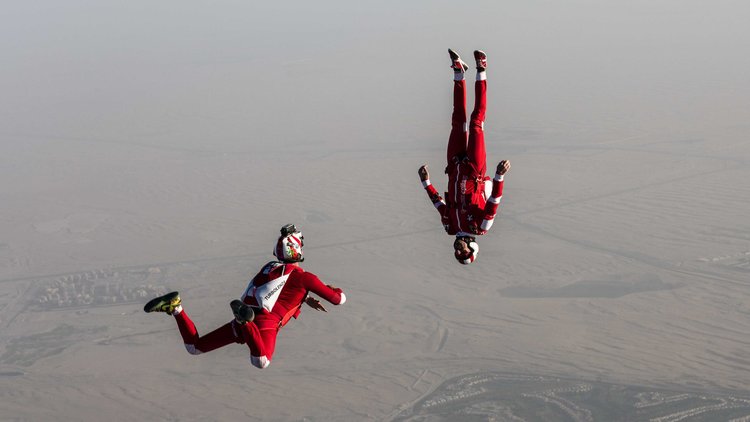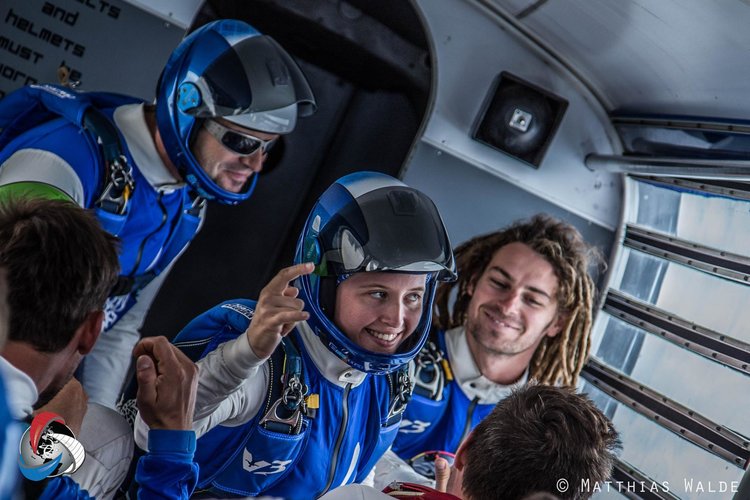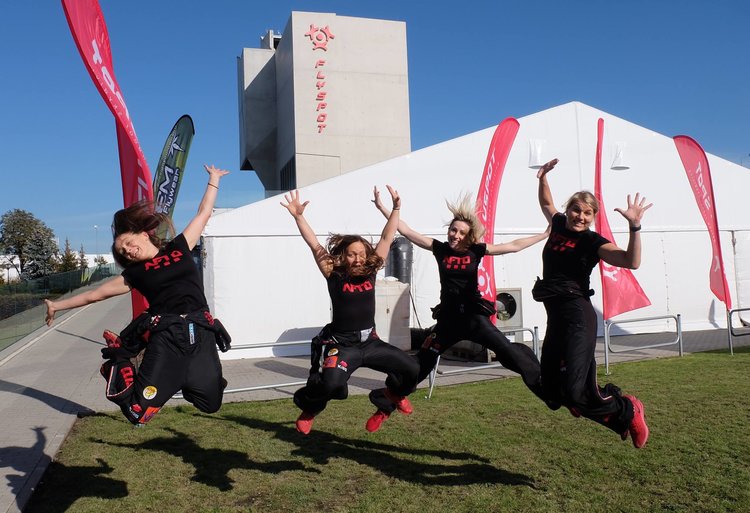Skydivers are a diverse bunch, drawn to the sky from across the length and breadth of human endeavour – and we each bring with us into any group dynamic a particular set of strengths and weaknesses. Across the different available disciplines teams are very different beasts, from the fairly compact pair of people that make up a Freestyle team to the unruly herds of 8-Way. There is no right or wrong way to get things done and one cannot accurately specify exactly what will or will not work for any particular team setup. I cannot tell you the best way to run a team – I can only share with you some things we have learned over the six years since deciding to start competing.

Different Jobs
At its serious end skydiving can be extremely complex. Each discipline has its own particular bonanza of inter-member technicality and bamboozling nomenclature to learn when you get involved (looking at you, belly types). While the kind of detail that information requires is beyond the space I have to write about here, one thing stands true – if you are in a new team and exploring a discipline then quality coaching from an experienced and reliable source will see you right and while this represents a definite cash investment it can amount to the equivalent of many, many skydives.
Outside of the part where actually plan and execute jumps, there is much that requires attention and many questions that need to be answered as you move through the calendar. For example:
Whose job is it to remind everyone to check the dates of their reserve (before you have already travelled to another country and are standing in front of an unimpressed looking dropzone employee?
Who is responsible for wrangling the team nincompoop and making sure they bring the absolutely vital things they need for skydiving – like a parachute?
Who wants the title of ‘Team Captain’ enough to accept that as soon as something goes wrong the others will just stare at them with bovine vapidity until they go and fix it?

For us, as a freefly trio, we settled loosely into the following roles:
Captain: The team captain’s job is to handle all of our active communication and formal arrangements. This involves booking flights, filing entry forms, negotiating with dropzones, communicating with sponsors and generally acting as the voice by which team business is presented.
Camera: By definition a camera flyer’s job has extra work involved. It is their task to ensure the setup they are using is present and correct, to make sure the batteries are always charged and to download and file all of the training jumps. The extra duties a camera flyer has all boil down to: When the jumps happen – don’t miss.
Nerd: Although not a formalised position – one person usually sticks out as being the geek of the bunch. For us the nerd’s job is to handle all of the promotion and exposure. This means building and maintaining the website, tending to the FB page and all other assorted social media thingies, editing photos to share with sponsors, producing video edits and writing magazine articles.
These roles we occupy were not allocated on purpose – we settled into the tasks based on experience, personal motivations, and our individual strengths and weaknesses.

Separate Business
As you progress as a team you will begin to court the attention of those keen to learn from your evolving skills. Coaching others or running events might become a viable way to promote yourselves and offset the cost of your investment. The business minded amongst you might have great ideas about how to operate but for us simplicity rules the day. Again, this is not the rules – what works for us after some experimentation.
While we all act under a shared team name, our individual coaching interests are conducted separately. The practical application of this is you reap what you sow. The best example I can present is that an annual event run under our team name is the work of a single member. All of the planning and preparation is their work alone and while the coaching and load organising are shared equally the remaining two members are present as employees. The team functions as a whole, but the potentially murky business of business is an individual enterprise and thus free of complications.
Conclusion
Everyone brings a different set of abilities. A team member might be a professional skydiver with years of experience who is up to their neck in the sport and able to commit their downtime to the machinations of team business, whereas another might be more removed – with a real career and a stressful home life who can turn up and train but has no time available to take on any of the logistical weight. Someone organised but with less skill in the air might be a huge asset in facilitating overall success while another might have an obscene natural ability in the sky but barely understand which way to put their trousers on in the morning. The key things for making a team work is communicate with each other and remember to have fun. If the universe has afforded you sufficient privilege to be part of a group of skydivers who test their skills against similar other groups then you are immensely lucky, so give it your best.
